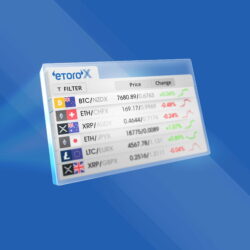There are multiple mutual fund options available in the market which makes picking the best out of them a difficult task. More options create more confusion but an investor cannot go on trying funds. The hard-earned money needs to be invested in the right mutual fund. The investment objective is very important to determine what the investment horizon and risk tolerance level of an investor is. Let us find out how to pick the best mutual fund as per your requirement.
The fixed-income securities i.e. the debt mutual fund are the best pick when looking for a steady flow of money. There are various quantitative and qualitative factors to determine the best among debt mutual funds.
There are broadly two-step process laid down for the selection of the best mutual fund-
- Selecting a mutual fund category.
- Choosing a scheme in the category
Below are the factors that an investor must look at while choosing a mutual fund category.
- Factors for selecting an investment category
- Investment Objective/goal- An investment objective is of utmost importance. The investment can be either long-term or short-term as per the investor’s financial aspiration. For example; a vacation, higher education of children, buying a house/car, etc.
- Time horizon- This refers to the period of holding i.e. for how long an investor wants to keep his money invested. It can be for a short period or a long period. Equity funds should be invested in for the long term as it gives higher returns. The funds are called the following based on their time horizon:
1 day to 3 months is Liquid funds.
3 months to 1 year is Ultra short-duration funds.
1 year to 3 years is Short duration funds.
- years to 5 years is Hybrid/Balanced funds
More than 5 years is Equity funds.
- Risk tolerance- The risk the investor is ready to take is the risk tolerance level. A display of riskometer for all mutual funds was made mandatory by SEBI in 2015. The riskometer consists of five levels of risk that are related to the amount invested. The 5 risk levels are moderately low, low, moderately high, moderate and high.
After the selection of the best debt mutual funds option based on investment objective, risk tolerance and time horizon the next step is to select a scheme within that mutual fund category.
- Mentioned below are the factors to pick the best mutual fund scheme:
- Performance of the company- The index benchmark is a standard for which a company’s stock allocation and performance are judged. The investment philosophy is determined with the help of the benchmark index. The asset allocation must be in line with the investment objective. The mutual funds utilize Total Returns Index as the benchmark mandated by the SEBI.
- Performance in a specific category- The company’s performance as compared to the other active peer group is equally important. This comparison should be made among the same kind of mutual funds schemes. For example; a large-cap company can only be taken into comparison for other mutual funds with large-cap.
- Performance consistency- A consistent good returns over a time period is a good mutual fund. The fund must be able to generate consistent returns even when the market fluctuates.
- Experience and expertise of the Fund Manager- the performance of a fund manager is another significant factor to look for while choosing a mutual fund scheme. An investor must look at the experience and expertise of the fund manager and question him about the past and currently managed funds by him.
- AMC track record- AMC or Asset Management Company is also known as a fund house that funds the mutual fund scheme. Most of the decisions are taken by the Chief Investment Officer of the AMC. It is significant to do a background check and track record of the performance of an AMC. For example; HDFC Mutual Fund is the name of the AMC which offers schemes such as the HDFC Equity, HDFC small-cap fund, and more.
- AUM- Assets under Management of the Scheme is about the value of the assets. In short, it means the number of subscriptions received by the scheme.
- Expense Ratio- The management, administration, distribution and promotion of a mutual fund is the fee charged by an AMC which makes up the expense ratio of a fund. Direct plans for mutual funds have a lower expense ratio as no commission for distribution is charged.
List of Top Mutual Funds to consider investing in FY 2020:
- Axis Small Cap fund- Direct plan.
- Axis Long term Equity Fund- Direct plan.
- Axis Midcap Fund- Growth.
- Axis Midcap Fund- Direct plan.
- JM Multicap Fund- Direct plan.
- Axis Bluechip Fund- Direct plan.
- JM Tax Gain Fund- Direct plan.
Best Debt Mutual Funds
There are the top five debt funds in India based on the past year returns:
- DSP Government Securities Fund- Regular Plan-Growth.
- Edelweiss Government Securities Fund Regular Growth.
- Reliance Income Fund-Growth Plan.
- L&T Triple Ace Bond Fund Growth.
- Aditya Birla Sun Life Floating Rate Fund Regular Plan-Growth.
FAQs
- Should one go for personal needs or market trends?
Choosing the right mutual fund is not easy. Be it a new investor or a seasoned investor, the task of picking the right scheme is an overwhelming process. Mutual fund selection is about choosing the scheme that meets your requirements i.e. the investment goal, time horizon, and risk tolerance.
- How to determine if the investment goal is negotiable or not?
A goal that can be pushed forward or delayed is negotiable whereas your child’s education fees are not negotiable. You will have to make the payment at a specific period and this cannot be delayed. Therefore, it is important to determine whether your goal is negotiable or not.
- What fund types should my portfolio contain?
The types of fund you should have in your portfolio are:
- Opt for debt-mutual funds, if you have non-negotiable short-term goals.
- Opt for equity-funds, if you have a non-negotiable goal which is a few years away.
- Opt for a balanced fund, if your goal is negotiable but short-term.
- Opt for equity funds, if you have a goal which is negotiable and long-term.





















